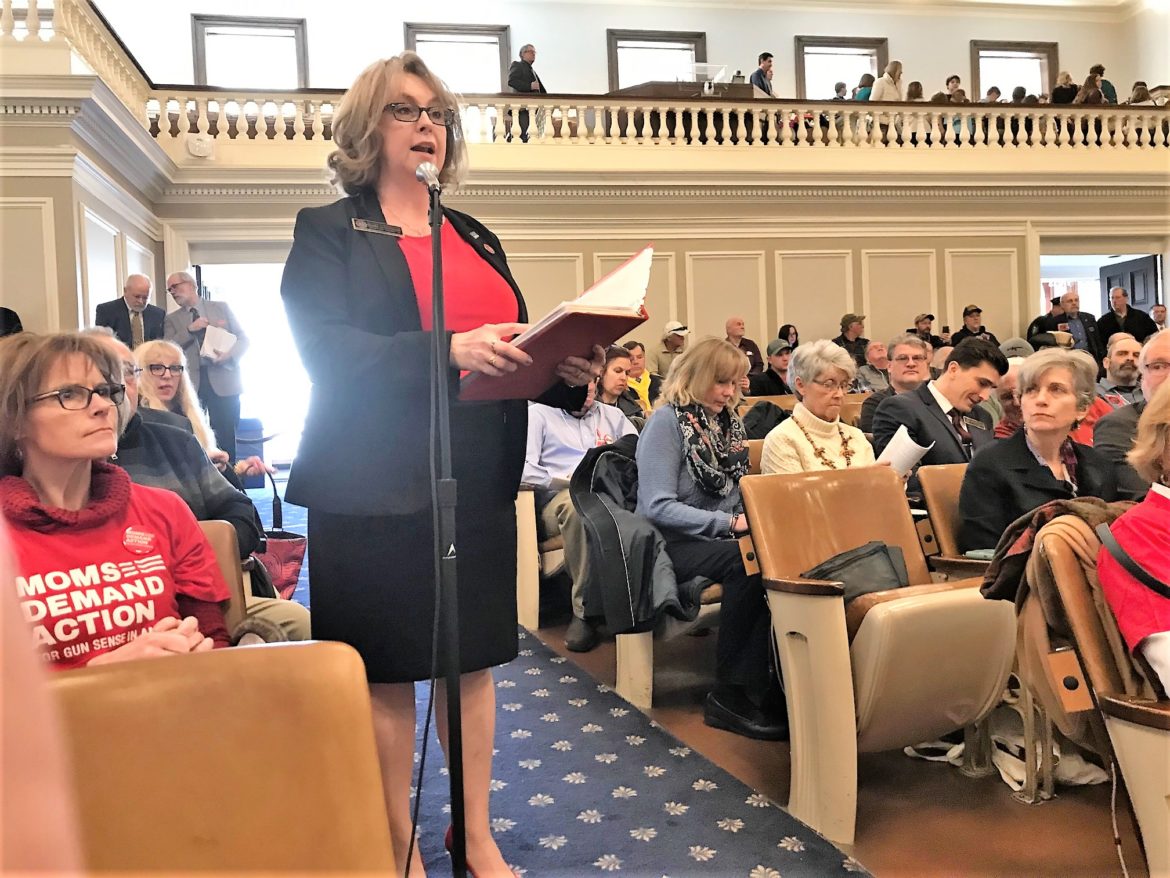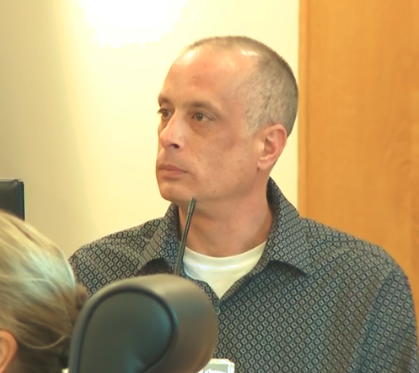By GARRY RAYNO, InDepthNH.org
CONCORD — As expected, Gov. Chris Sununu late Friday afternoon vetoed a bill establishing extreme protective orders intended to reduce suicides and mass killings.
House Bill 687, commonly known as the “Red Flag” bill, would have established a civil procedure to remove firearms and ammunition from someone who is at risk of harming him or herself or others.
The bill would have established extreme risk protection orders through a civil process initiated by a person’s family, housemates or law enforcement.
The legislation is similar to laws in 19 states and the District of Columbia.
But opponents say the bill would trample on the constitutional rights of individuals on hearsay evidence without due process, particularly gun rights.
In his veto message, Sununu said he has signed legislation to bring awareness to suicide prevention and has worked to improve the state’s mental health system but cannot approve a bill that would strip residents of their constitutional rights.
“Unfortunately, the process laid out in House Bill 687 goes too far and would weaken the constitutional rights of law-abiding New Hampshire citizens,” Sununu said. “This bill could lead to situations where law-abiding Granite Staters have their property seized with no notice or opportunity to speak in their own defense. The lack of due process in this legislation is antithetical to the New Hampshire and American tradition.”
The bill’s prime sponsor Debra Altschiller, D-Stratham, said the bill is needed now more than ever due to the coronavirus pandemic with more people in mental health crisis and the significant increase in gun sales.
“Across the nation, professionals have cited a significant rise in mental health crisis during the coronavirus pandemic while underfunded community mental health centers around the country and in New Hampshire are struggling to stay afloat and manage the caseload,” Altschiller said. “We know that gun sales have increased dramatically since March, some 3 million more guns purchased than average and that almost half of these sales were to first-time gun owners.”
The state has seen a 47 percent increase in suicides since the pandemic, and half with firearms, she noted. “It is sickening that Gov. Sununu refuses to sign widely accepted legislation that can empower family members and law enforcement to prevent more tragic loss.”
“Suicide is New Hampshire’s second leading cause of death, a horrifying reality for so many Granite State families left behind.”Altschiller said. “This legislation would have enabled families to take action to protect their loved one when they see warning signs and prevent their family from becoming another sobering statistic in this state.”
Senate Judiciary Committee chair Sen. Martha Hennessey, D-Hanover, said suicide has claimed thousands of New Hampshire lives.
“Nearly half of those suicides were done with a firearm,” she said. “According to a report published by the CDC (Centers for Disease Control and Prevention), our suicide rates increased 48.3 percent between 1999-2016. This cannot continue.”
Hennessey said extreme protective orders are health and safety orders not attempts to deny constitutional rights.
“The intention is not, as the opposition has wrongfully argued, to take away guns from their lawful owners,” Hennessey said. “The intention is to give concerned family members and law enforcement the proper tools to request assistance from our courts in protecting someone who may be a danger to themselves and others.”
She said it is life-saving legislation that Sununu vetoed.
But the House Minority Leader Dick Hinch, R-Merrimack, praised the veto saying Republicans were united against the bill.
“HB 687 would have set a dangerous precedent by adding yet another tool to strip law-abiding citizens of their guns,” Hinch said. “This bill will inevitably result in false accusations and abuse that will lead to suspension of an individual’s constitutional rights without proper due process.”
He said a person’s firearms could be seized based on a mere accusation and if the person was found not to be a risk, he or she would have to go to court in order to retrieve their property.
“That is flat out wrong,” Hinch said.
Under the bill, a family member, housemate or a member of law enforcement would be able to file a petition with the local district court claiming the person is a threat to him or herself or others.
Petitions would need to be signed and the petitioner would swear under oath to its content or face perjury charges.
A hearing would be held within seven days and the subject would have an opportunity to contest the accusations.
For a judge to grant a petition, a preponderance of evidence would be needed. An order could remove a person’s firearms for up to a year, and the person would need to petition the court to prove he or she is no longer a threat to regain possession.
But opponents said a person’s firearms could be confiscated without any legal response in ex-parte hearings over the telephone and the bill encourages abuse by disgruntled family members.
The bill was originally introduced in the 2019 session, but was retained by the House Criminal Justice and Public Safety Committee.
HB 687 passed the House 201-176 in January and the Senate 14-10 in June, neither vote enough to override the veto.
Garry Rayno may be reached at garry.rayno@yahoo.com.





